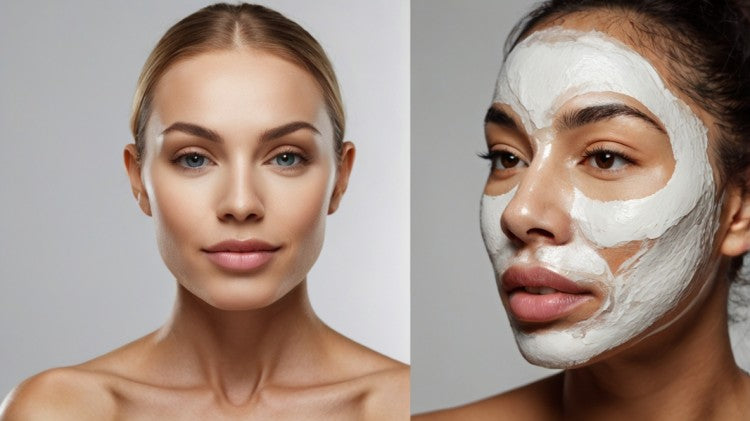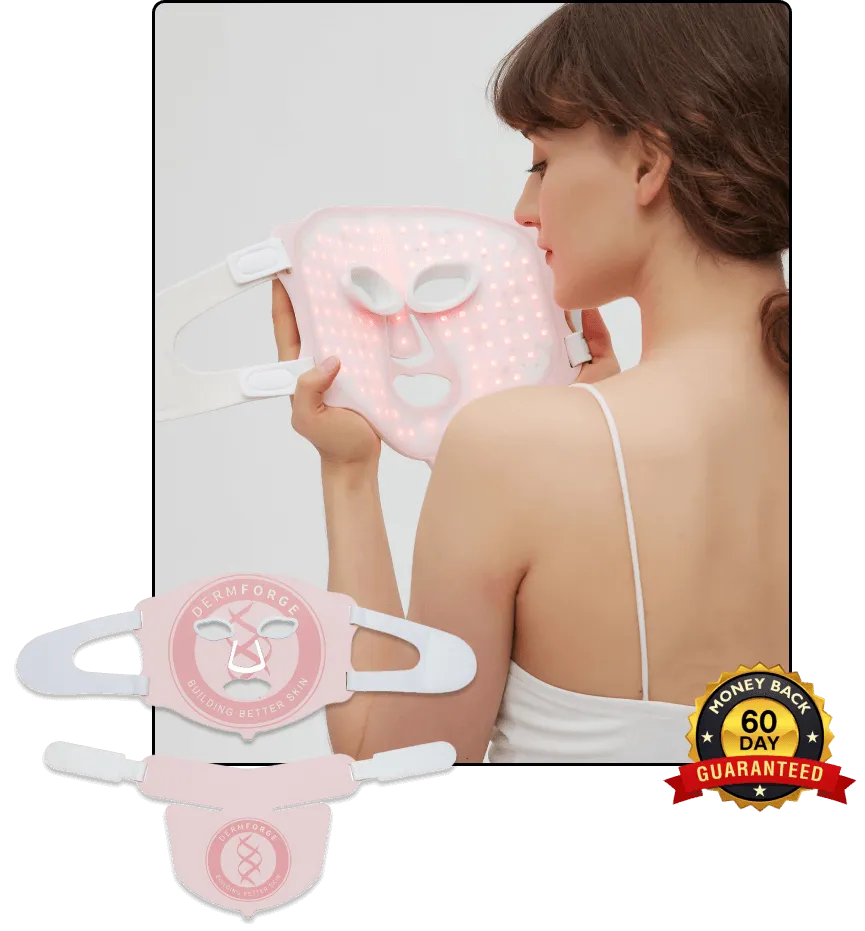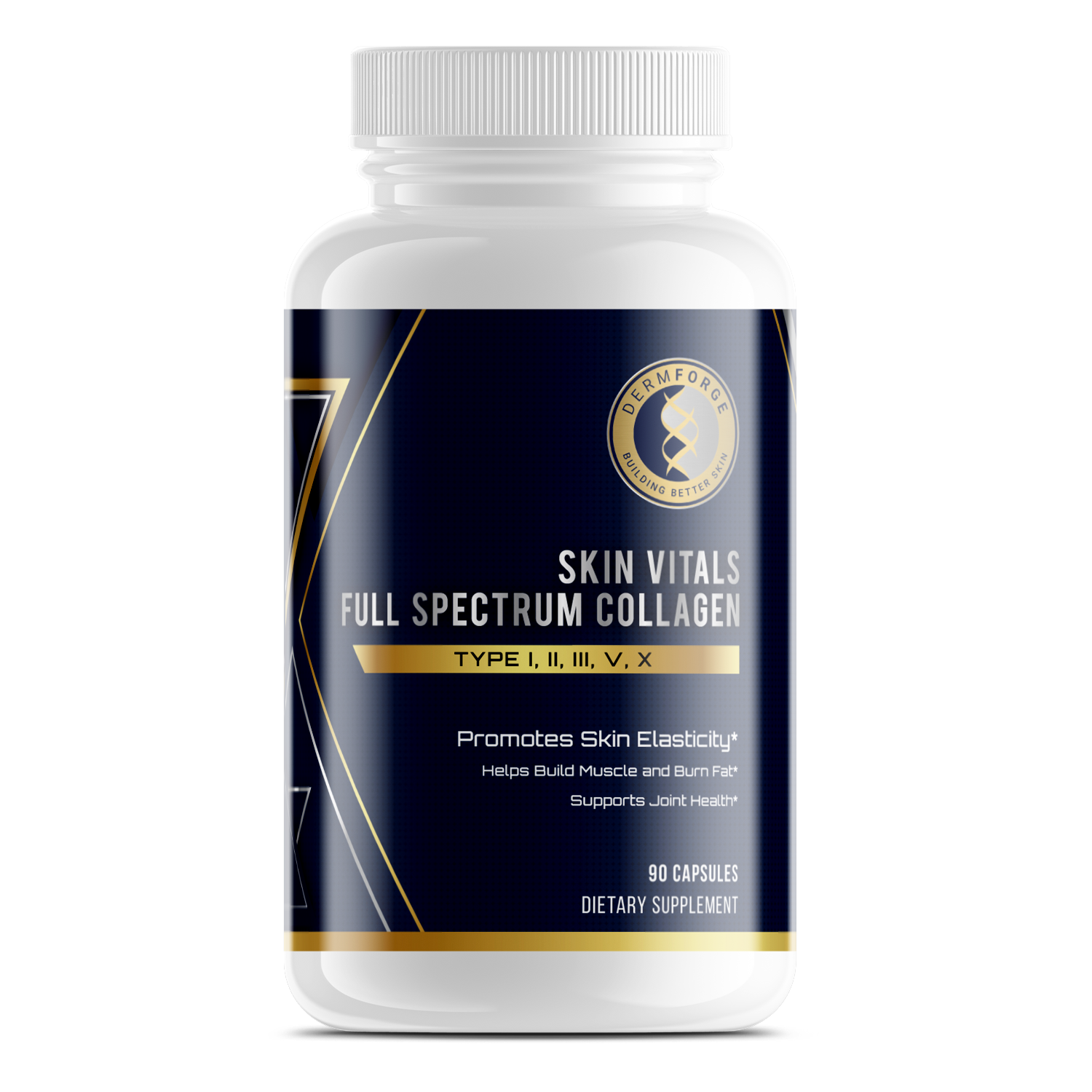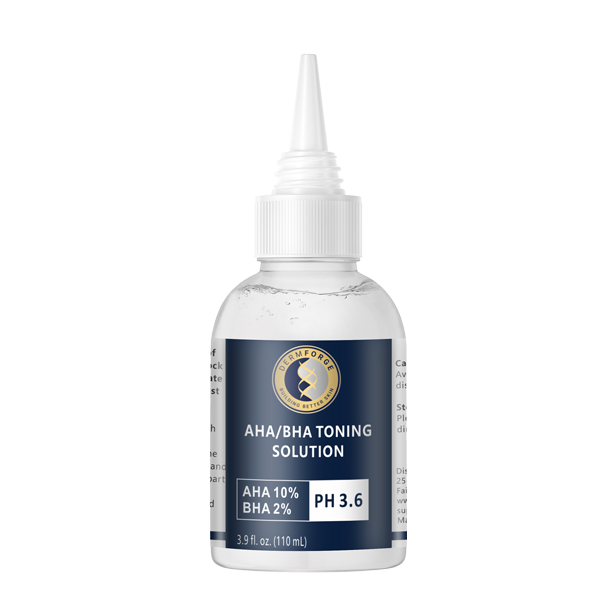The growing interest in skin health has brought new attention to collagen supplementation vs. collagen-boosting topicals. Both options promise to support collagen production and improve skin firmness, yet they work in different ways. Oral collagen supplements aim to nourish your body from within by providing amino acids that contribute to stronger connective tissue. Topical peptides, on the other hand, focus on surface repair by signaling skin cells to create new collagen where it is needed. Therefore, understanding how these two approaches function helps you choose what fits best with your skin goals and lifestyle.
Collagen plays an essential role in keeping your skin smooth, elastic, and youthful. However, natural collagen production slows with age, environmental stress, and poor diet. Therefore, using supplements or topicals can help offset this gradual decline. The key is finding the right balance between internal and external support. Oral collagen works systematically, while peptide serums offer targeted results. When combined thoughtfully, both can strengthen the skin barrier and improve texture over time.
Additionally, your personal habits influence how well each method performs. Eating a balanced diet, staying hydrated, and maintaining consistent skincare practices all contribute to lasting improvement. It takes patience to notice visible results since collagen renewal occurs gradually. However, steady routines supported by quality products can help your skin regain resilience and natural radiance. Understanding how each method contributes allows you to make practical, long-term choices that align with your needs rather than chasing quick fixes.
Mechanisms of Action: How Oral Collagen vs Topical Peptides Work
When you explore collagen supplementation vs. collagen-boosting topicals, you’ll find that the two approaches take very different routes to influence your skin’s collagen network. First, let’s look at how oral collagen works. When you ingest hydrolyzed collagen or collagen peptides, your digestive system breaks the complex protein down into smaller fragments, namely di- and tri-peptides, and free amino acids. The small peptides enter the bloodstream via the small intestine, and in some studies they have been measured in skin tissue after ingestion. Once circulating, these peptides may act as signals or provide the building blocks that encourage dermal fibroblasts (the cells that synthesize collagen) to increase collagen production or to repair the existing matrix. However, you must consider caveats: digestion and absorption vary between individuals; the molecular size of peptides matters; some peptides may degrade before reaching skin; and evidence that a given peptide ends up in significant amounts in your dermis remains limited.
On the other hand, topical peptides and other collagen-boosting agents work quite differently. When applied to the skin as part of a serum or cream, peptides act primarily as signalling molecules that reach local fibroblasts and instruct them to produce more collagen or to reduce collagen breakdown. For example, some peptides mimic fragments of collagen that appear when the matrix is damaged; those fragments stimulate skin cells to ramp up collagen and elastin synthesis. Also, certain peptides inhibit the enzymes (matrix metalloproteinases) that degrade collagen, thus helping maintain the existing matrix. Yet topicals face their own hurdles: the size of the peptides, the skin’s barrier (stratum corneum), and formulation stability all affect how much of the active peptide actually penetrates to the dermis.
Taken together, you can see that oral supplementation offers a systemic route, supplying internal substrates and signalling peptides that may support the skin’s collagen infrastructure. Topical peptides offer a targeted, local route by directly signalling skin cells to act in-situ. The choice between them, or the decision to combine them, depends on your goals, your skin condition, and your understanding of these underlying mechanisms.
Efficacy and Scientific Evidence: What Studies Show
Research on collagen supplementation vs. collagen-boosting topicals continues to grow, giving you more data to evaluate each approach. Studies on oral collagen show measurable improvements in skin hydration, elasticity, and wrinkle depth. Researchers found that collagen peptides can increase fibroblast activity and boost skin density over several weeks. Many participants reported smoother texture and fewer visible lines after consistent use. Additionally, certain trials suggest collagen supplementation supports not only facial skin but also overall dermal structure across the body.
Topical peptide research focuses on how small amino acid chains signal your skin to produce more collagen. Ingredients like matrixyl and copper peptides have shown promise in controlled tests. These compounds stimulate fibroblasts and reduce enzymes that break down existing collagen. Therefore, users often notice firmer, more resilient skin with continued application. Moreover, studies comparing peptide formulas with placebo creams typically show improved elasticity and smoother appearance within a few months of use.
However, every study has limits that you should recognize before drawing conclusions. Many trials involve small sample sizes or short durations, reducing the strength of the findings. Additionally, some research receives funding from product manufacturers, which may influence reporting or interpretation. Therefore, results can vary based on dosage, formulation, and study design. Still, the combined evidence points toward consistent though moderate benefits from both internal and topical collagen support. Understanding these limits helps you interpret claims realistically and choose products that align with your personal goals.
Pros & Cons: Strengths, Limitations, and Safety Profiles
When comparing collagen supplementation vs. collagen-boosting topicals, it helps to understand both their strengths and their potential drawbacks. Oral collagen offers wide-ranging benefits that extend beyond your skin. Because it circulates through your bloodstream, it can support your joints, bones, and connective tissues. Therefore, many users report improvements in both skin elasticity and overall comfort. Additionally, oral collagen provides amino acids that your body uses to repair and rebuild multiple structures, giving it a systemic advantage.
However, this approach has some limitations. The body’s ability to absorb and use collagen peptides can vary from person to person. Some users may experience mild digestive discomfort, depending on the formulation and dose. Additionally, sourcing from animal or marine origins can be a concern for those with dietary restrictions or allergies. Cost can also add up with long-term use since effective results often require consistent supplementation over several months.
Topical peptide serums, on the other hand, focus on localized action. These formulas signal your skin cells to produce more collagen exactly where it is needed. They create a more targeted approach without burdening your entire system. Additionally, topical use avoids digestion-related issues and allows direct application to problem areas. However, their effectiveness can be limited by the skin’s natural barrier. Larger peptides may not penetrate deeply enough to reach the dermis where collagen forms. Moreover, formulations can lose stability over time, and some users may experience mild irritation.
Both methods offer real benefits when used properly. Understanding their specific strengths and limitations helps you choose an approach that aligns with your goals and tolerance.
Synergy or Redundancy: Can You Use Both Together?
When comparing collagen supplementation vs. collagen-boosting topicals, many people wonder if using both can lead to greater results. Oral collagen and topical peptides work through different biological pathways, which means combining them may offer complementary benefits. Therefore, oral collagen supports the internal production of new collagen while topical peptides encourage local repair and protection. Together, they can address both the internal and external aspects of collagen maintenance, giving your skin more consistent reinforcement.
Additionally, timing can make a difference in how well each method performs. Taking oral collagen daily, such as Collagen Full Spectrum 500 mg, provides your body with a steady supply of amino acids and peptides. Applying a peptide serum after cleansing and before moisturizing helps deliver surface-level signals directly to the skin. This layering approach does not interfere with either product and may allow for additive results. However, consistency remains more important than timing precision. Regular use is what helps you notice visible texture and firmness changes.
That said, it is possible to reach a point of diminishing returns. If your collagen levels are already balanced and your skin barrier is healthy, additional use may not yield faster or stronger results. Furthermore, combining too many active ingredients at once can sometimes irritate sensitive skin. Therefore, it is wise to introduce one product at a time and observe your response before committing to a full regimen. When balanced correctly, oral and topical collagen support can complement each other without overlap or interference.
User Experience & Practical Guidelines: Integration Into Daily Routines
When exploring collagen supplementation vs. collagen-boosting topicals, it helps to understand how to fit both into your daily routine effectively. Taking oral collagen, such as Collagen Full Spectrum 500 mg, works best when done consistently. You can take it in the morning with water or mix it into a smoothie. Some users prefer taking it at night since skin repair happens during sleep. The key is consistency rather than timing. Regular intake supplies your body with amino acids that support collagen production over time.
Topical peptide serums fit easily into your skincare routine. After cleansing, apply a few drops of serum to slightly damp skin. This allows for better absorption before layering moisturizer or sunscreen. Additionally, applying peptides in the evening can support overnight renewal. Avoid combining them with strong exfoliants or acids, which may weaken their stability. Over time, these small steps help your skin appear smoother and more resilient.
Diet and lifestyle also influence collagen health. Adding foods rich in vitamin C, zinc, and copper supports the body’s natural collagen synthesis. Staying hydrated and limiting excessive sun exposure further protect your skin’s structure. Additionally, maintaining adequate protein intake helps your body rebuild connective tissue more efficiently.
Changes usually appear gradually. Most people notice improvements in skin texture and firmness within two to three months. Keeping photos and notes can help track subtle changes that might otherwise go unnoticed. Therefore, patience matters as your skin rebuilds at its natural pace. When you commit to a consistent routine, combining internal and topical support creates long-term benefits that maintain healthier, stronger skin.
Choosing What Works for You: Personalizing Collagen Care
Finding what works best for your skin often depends on your individual goals and preferences. When exploring collagen supplementation vs. collagen-boosting topicals, your age, diet, and overall skin condition play a significant role. Younger skin may respond faster to peptides since its natural collagen levels remain relatively high. However, as you age, internal collagen production slows, making oral supplementation a helpful addition. Additionally, your nutritional habits and hydration levels influence how effectively your body uses collagen and related amino acids.
Oral collagen offers system-wide support for skin, joints, and connective tissue. Therefore, it can be an excellent choice if you want a more comprehensive approach to maintaining firmness and elasticity. Peptide serums, by contrast, deliver local results where you apply them. They target visible areas like fine lines, dullness, or uneven texture. Using both can offer a balanced routine that supports collagen production inside and out. However, you should start slowly and give your body time to adjust before adding multiple products.
Budget also plays a role in your decision. Collagen powders or capsules require ongoing use to maintain results, while a high-quality serum may last longer per application. Therefore, choosing a regimen that fits comfortably within your budget encourages consistency, which ultimately drives visible improvement.
Patience remains essential. Collagen renewal takes time, often several months of steady use before you notice visible results. Taking progress photos or noting changes in skin feel can help you track improvement. Therefore, personalizing your collagen care means balancing consistency, affordability, and realistic expectations for lasting, healthy skin.
Conclusion
Understanding collagen supplementation vs. collagen-boosting topicals helps you make more informed choices about caring for your skin. Each method offers unique benefits and can work well depending on your needs and goals. Oral collagen provides internal support that helps your body maintain elasticity and structure from within. Meanwhile, topical peptides encourage your skin to strengthen its outer barrier and stimulate collagen renewal where it is applied. Both methods share the same purpose, but they achieve it through different pathways that can complement each other over time.
Additionally, combining oral and topical approaches may lead to more balanced results. When you nourish your body from the inside and treat your skin externally, you support collagen formation more completely. Therefore, consistency becomes more important than which method you prefer. You can adjust your routine as your skin’s needs change, experimenting with dosage, timing, or product texture until it feels sustainable. Maintaining a realistic perspective helps you avoid frustration and appreciate gradual progress.
Healthy collagen production depends on more than supplements or serums alone. A balanced diet, adequate rest, and regular hydration all support stronger skin from the foundation up. Therefore, think of collagen care as part of a broader self-maintenance routine rather than a quick fix. Over time, steady habits deliver visible improvement in firmness, tone, and texture. Whether you favor supplementation, topical care, or both, your results will depend on consistency and mindful choices that respect your body’s natural rhythm.







